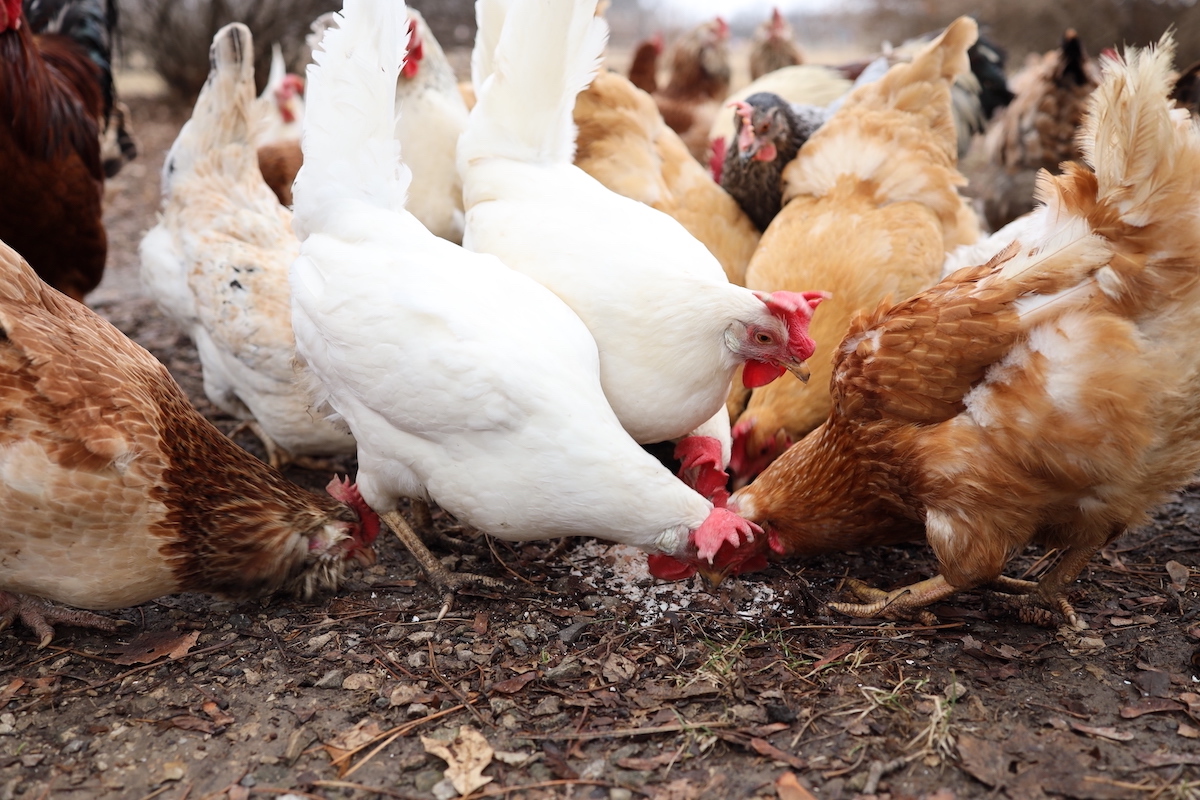If you’re a chicken farmer, or just a backyard chicken enthusiast, you know that providing your birds with the proper nutrition is key to keeping them healthy and happy. One of the most important elements for optimal chicken husbandry is calcium. Calcium is essential for healthy egg production in hens, and it helps to strengthen their bones and shell. Fortunately, there are many ways to give chickens calcium, and this article will explain how to do it.
Benefits of Calcium for Chickens
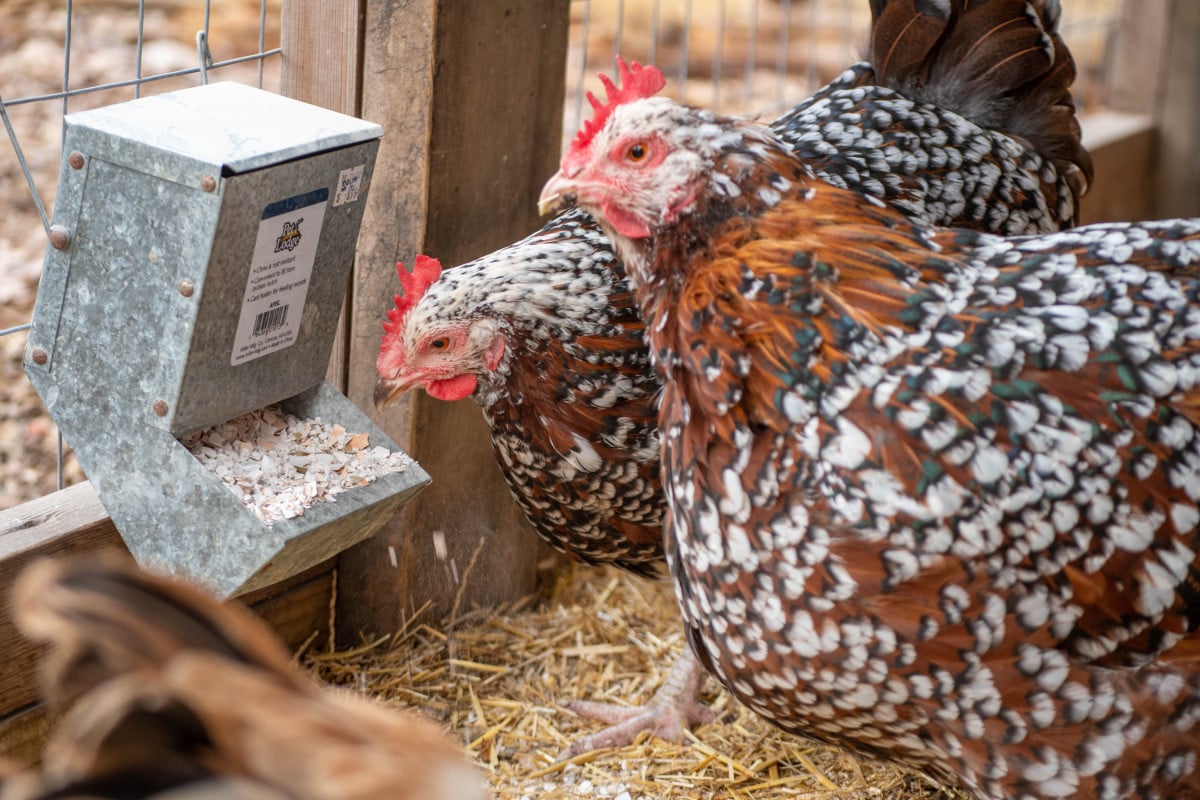
Calcium is an essential mineral for chickens. It not only helps keep chickens healthy, it also aids in egg production and development. Here are some of the key benefits of calcium for chickens:
- Prevents eggshell thinning and fractures: Calcium is necessary for strong eggshells. It helps prevent eggshell thinning and fractures, which can result in fewer eggs being laid and a greater risk of infection.
- Improves egg production: Calcium helps to improve the number of eggs that a chicken lays. Providing enough calcium can help chickens to lay more eggs in a shorter period of time.
- Supports bone health: Calcium is essential for strong bones in chickens. Without enough calcium, chickens can develop weak bones, which could lead to an increased risk of broken bones.
- Aids in muscle function: Calcium helps to regulate the muscles of the chicken, which can help to improve the chicken’s overall muscle tone and strength.
- Supports feather growth: Calcium is also important for healthy feather growth in chickens. Without enough calcium, chickens may have weak and sparse feathers.
Therefore, it is important to provide chickens with enough calcium to ensure they remain healthy and productive. To give chickens calcium, you should provide them with a calcium-rich diet, such as oyster shells or eggshells, and a calcium supplement.
Sources of Calcium for Chickens
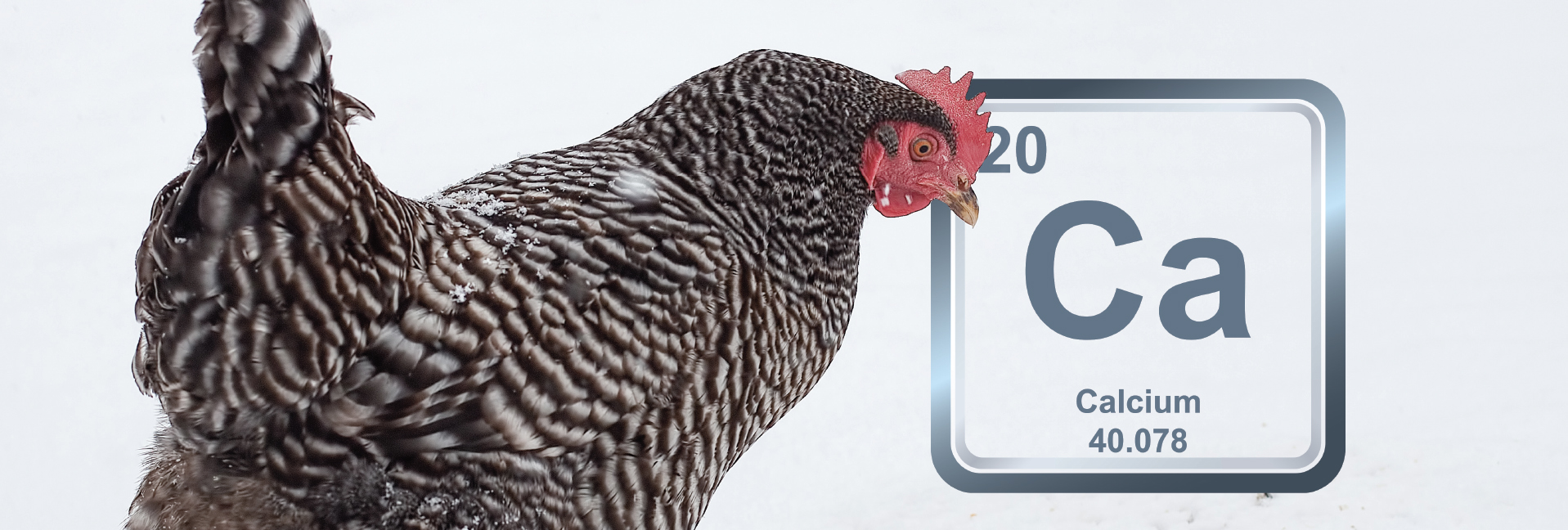
Chickens need calcium in their diet to grow strong bones and eggshells. To ensure optimal chicken husbandry, it is important to provide them with enough of this essential nutrient. Sources of calcium for chickens include:
Eggshells: Eggshells are a great source of calcium, as they are composed of 95-97% calcium carbonate. The calcium in eggshells is also easily absorbed by chickens.
Grit: Grit is a mixture of small rocks and minerals that chickens need in their diets. It is composed of quartz, granite, feldspar, and other minerals, which contain calcium and other essential nutrients.
Ground Oyster Shells: Ground oyster shells are a great source of calcium for chickens. They are composed of calcium carbonate and provide a natural source of calcium that is easily absorbed by chickens.
Limestone Flour: Limestone flour is a finely ground powder made from limestone, which is composed of calcium carbonate. It is an excellent source of calcium for chickens and can be added to their feed.
Calcium Supplements: Calcium supplements such as calcium carbonate and calcium citrate are also good sources of calcium for chickens. They should be added to their feed according to the directions on the packaging.
How to Give Chickens Calcium
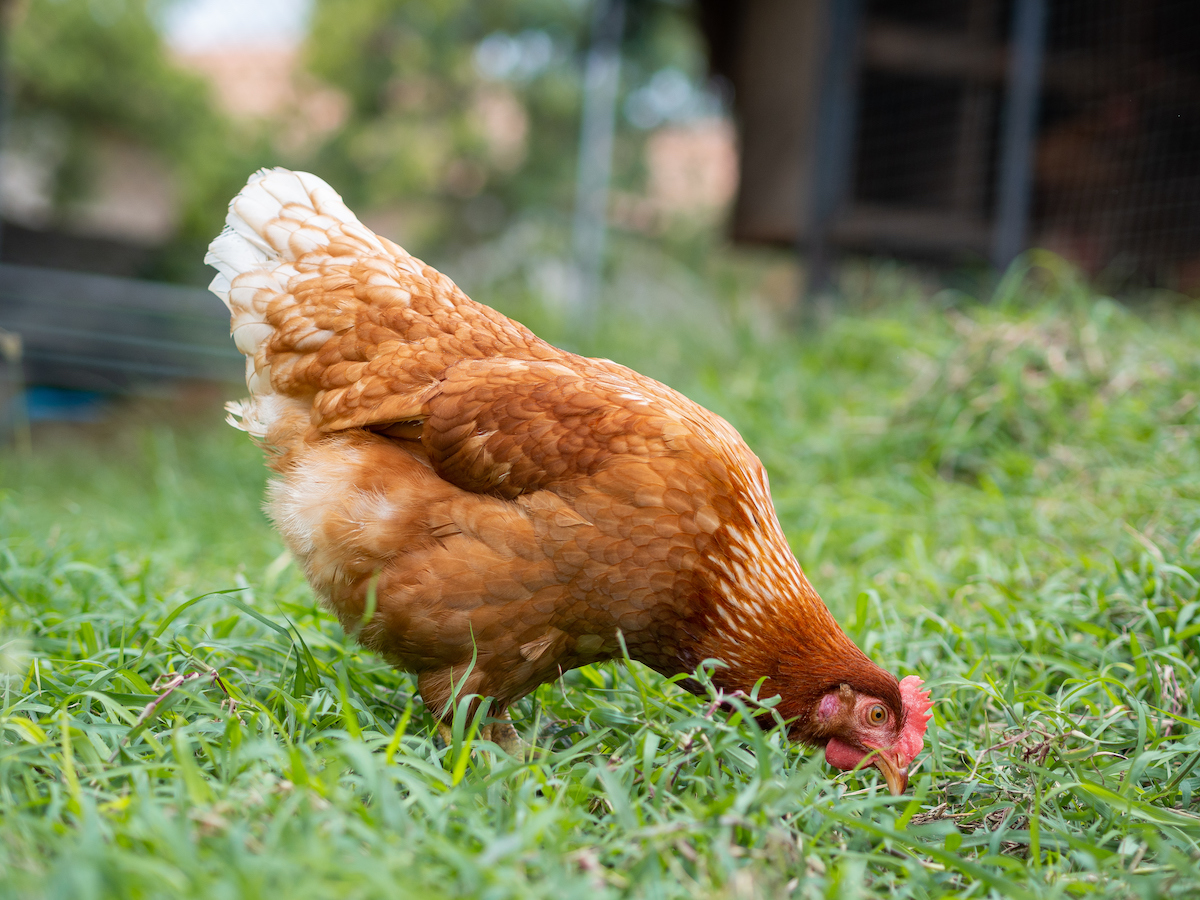
Calcium Supplements
Providing calcium to chickens is an important part of optimal chicken husbandry. Calcium supplements can be added to a chicken’s diet in the form of a powder, crumble, or block. Generally, a tablespoon of supplement should be given per gallon of feed. It is important to remember that calcium needs to be balanced with phosphorus, so a ratio of 2:1 calcium to phosphorus should be maintained.
Calcium-Rich Foods
Chickens consume a variety of foods in the wild, many of which are rich in calcium. These can include snails, slugs, grass, and insects. When providing these foods in captivity, it is important to make sure that they are free of pesticides and other contaminants.
Oyster Shells and Eggshells
Oyster shells and eggshells are two of the most popular ways to provide calcium to chickens. Oyster shells should be finely-ground and can be given in a separate container or mixed into the feed. Eggshells should be boiled and crushed prior to feeding. They can be fed as is or mixed into the feed. It is important to note that eggshells are not a complete source of calcium, and should be supplemented with other calcium sources.
Calcium Deficiencies in Chickens

- Eggshell Quality: Calcium is essential for the formation of strong and healthy eggshells. If your chickens are not getting enough calcium, the eggshells may be thin, brittle, and easily cracked.
- Bone Strength: Calcium is also important for the strength and integrity of chicken bones. Without adequate calcium, chickens may be more prone to bone fractures and deformities.
- Nervous System: Calcium is important for proper nerve function, and a calcium deficiency can lead to paralysis and other neurological problems.
- Breast Blisters: A calcium deficiency can lead to painful and irritated blisters on the breasts of chickens.
- Other Symptoms: Other signs of a calcium deficiency can include weak leg muscles, poor feather growth, and poor appetite.
Health Concerns for Calcium-Rich Diets in Chickens
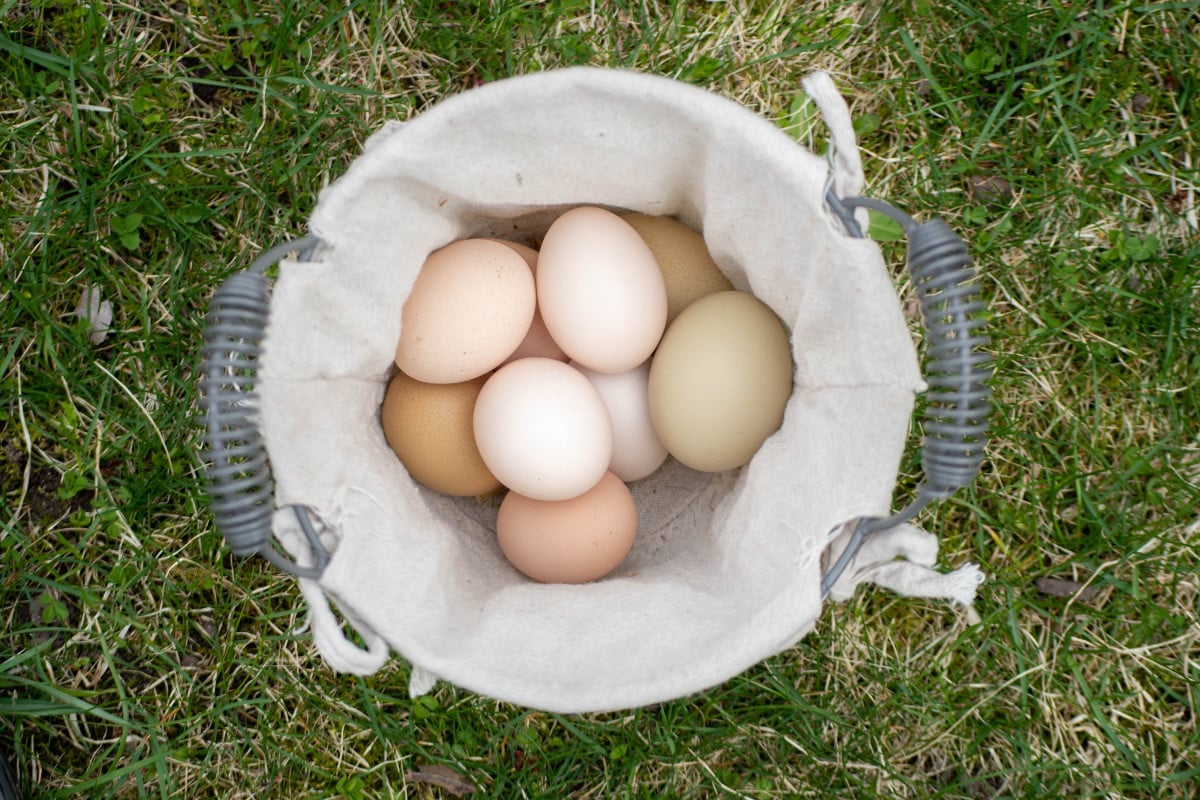
- High calcium levels in chicken feed can cause kidney stones, egg binding, and other health problems. Chickens need calcium for healthy bones and eggshells, but too much can be dangerous. Excess calcium can form stones in the kidney or urinary tract, leading to egg binding or other health problems.
- High calcium levels can also cause metabolic bone disease. Metabolic bone disease is a condition caused by calcium imbalance in the body. It can lead to soft bones and poor eggshell quality, as well as other health problems.
- A calcium-rich diet should be balanced with other nutrients. Calcium-rich diets should be balanced with other essential nutrients, including phosphorus, magnesium, trace minerals, and vitamins. An unbalanced diet can cause health problems or poor egg production.
- Chickens need a different amount of calcium at different ages. Young chickens need more calcium than older chickens. Baby chicks need about 1.5-2.5% calcium in their diet, while adult chickens need around 0.8-1.2%.
- Calcium levels should be monitored closely. The calcium level in the feed should be monitored closely to ensure that it is not too high or too low. Too much calcium can lead to health problems, while too little can lead to poor eggshell quality.
Signs of Calcium Deficiency in Chickens
- Soft eggshells: Chickens require calcium to produce strong eggshells. If the eggshells are soft, this may be a sign of nutritional deficiencies, with calcium being the most likely culprit.
- Leg weakness: Calcium is vital for strong bones and if the chickens are not getting enough calcium, they may be suffering from leg weakness.
- Breastbone deformation: Low calcium levels can lead to a deformity known as “splay leg” which is when the breastbone becomes curved.
- Decreased egg production: Without enough calcium, egg production may decrease or stop altogether.
- Lack of appetite: Calcium deficiencies can cause chickens to lose their appetite and stop eating.
Frequently Asked Questions
What Types of Calcium are Best for Chickens?
- Oyster Shell Calcium – is a natural calcium supplement that can be fed to chickens on a daily basis to ensure they have the calcium they need for strong bones. Oyster shell calcium is made from natural oyster shells and is safe for chickens to eat.
- Calcium Carbonate – is a form of calcium supplement that is available in both powder and tablet form. This form of calcium is easily absorbed by the chicken and will provide them with the calcium they need to maintain healthy bones.
- Calcium Gluconate – is another form of calcium supplement that can be given to chickens to ensure they have the calcium they need. Calcium gluconate is a form of calcium that is absorbed quickly by the chicken’s body and provides a good source of calcium.
- Eggshell Powder – is a natural form of calcium that can be fed to chickens on a regular basis. Eggshell powder can be mixed into the chickens’ feed or used as a supplement to their regular feed.
When choosing a calcium supplement for chickens, it is important to select one that is specifically designed for chickens. Calcium supplements for humans and other animals may not be suitable for chickens and can potentially cause health problems.
Is there a specific amount of calcium chickens need?
- Adult chickens: While there is no one-size-fits-all answer, adult chickens should generally ingest between 0.8 and 1.2 grams of calcium per day. This can be achieved by providing them with a high-quality layer feed that contains 16-20% calcium.
- Young chicks: Young chicks require more calcium than adult chickens, up to 1.5 grams per day. To ensure they get adequate calcium, feed them a starter feed that contains 22-25% calcium.
- Egg-laying chickens: Egg-laying chickens need an additional boost of calcium to ensure their eggs are strong and healthy. Provide them with additional calcium in the form of oyster shells, which have a calcium content of 38%.
How Often Should I Provide Calcium to My Chickens?
Chickens should receive calcium in their diet every day. It is best to provide calcium in the form of oyster shell or limestone grit, as these are the most bioavailable forms of calcium for chickens. Offer the calcium in a separate feeder, as chickens tend to pick out the most desirable food. The amount of calcium chickens need can vary significantly, depending on their age, breed, and reproductive status. Generally, laying hens require more calcium than non-laying hens. A good rule of thumb is to offer around 1 tablespoon of oyster shells or limestone grit per chicken per day. Monitor your chickens’ calcium intake and adjust the amount accordingly.
How can I tell if my chickens are getting enough calcium?
Chickens that are receiving enough calcium should have strong, healthy eggshells, as calcium is an essential mineral for eggshell formation. If the eggshells are thin, brittle or misshapen, it could be a sign of a calcium deficiency. Additionally, chickens may show signs of poor feather quality, decreased egg production and even decreased egg size if they are not receiving enough calcium.
Are there any risks associated with providing too much calcium?
Excessive calcium intake can cause kidney damage and even death in chickens. Additionally, too much calcium can cause metabolic bone disease, which can lead to skeletal deformities and egg-laying problems. Therefore, it is important to only provide calcium in the recommended amounts and not to overfeed calcium supplements.
Conclusion
Providing chickens with essential calcium is vital for optimal health and development. Calcium can be provided through a variety of sources: commercial feed, oyster shell grit, and even homemade calcium-rich treats. Additionally, it’s important to ensure the chickens have access to a balanced diet and plenty of exercise. With the right nutrition and care, chickens can live healthy lives.
